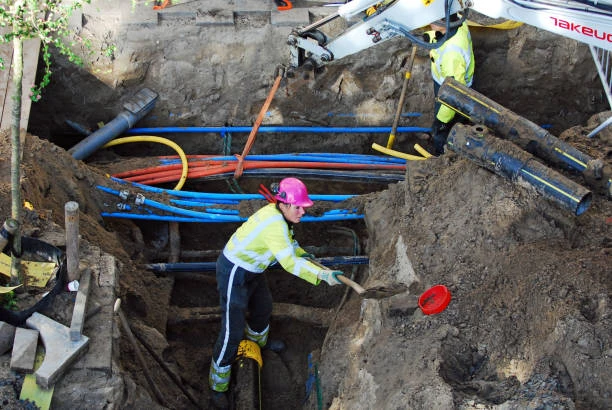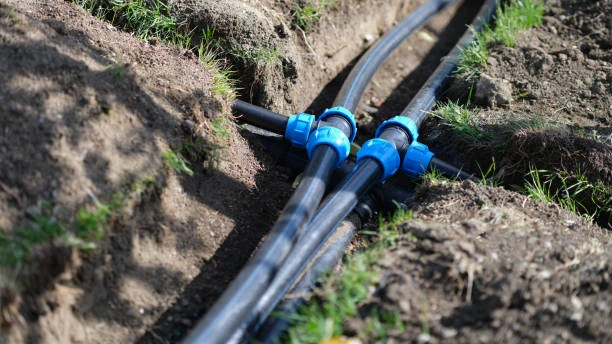Plastic pipe have become an essential component of modern infrastructure, particularly in the fields of water distribution, sewage systems, and gas pipelines. In Fars Province, located in southern Iran, plastic pipes are widely use due to their cost-effectiveness, ease of installation, and resistance to corrosion. However, a growing concern has arisen regarding the phenomenon of “plastic pipe smoking,” a term used to describe the unhealthy practices surrounding plastic pipe usage and burning. This issue has raise environmental and health concerns, especially when plastic pipes are improperly dispos of, incinerated, or exposed to heat in certain industrial and residential areas.
In this article, we will explore the issue of plastic pipe smoking in Fars Province, the environmental impact of such practices, the health risks involved, and potential solutions to mitigate these issues. We will also discuss the role of plastic pipes in the region’s infrastructure and examine strategies to ensure safe and sustainable use of these materials.

What Is Plastic Pipe Smoking?
Plastic pipe smoking refers to the burning or heating of plastic pipes, often for disposal purposes or as part of an illegal or informal industry. Plastic pipes, particularly those made from materials like PVC (Polyvinyl Chloride) and PEX (Cross-linked Polyethylene), are not biodegradable, making them challenging to dispose of properly. In many regions, including Fars Province, these pipes are often burn in open spaces or at unregulated disposal sites, releasing toxic fumes into the air.
When plastic pipes are heat or burned, they release harmful chemicals such as dioxins, furans, and phthalates, which are know to be hazardous to human health and the environment. These toxic substances can contribute to air pollution, environmental degradation, and serious health problems, particularly for people who live or work near these disposal sites.
Plastic Pipe Use in Fars Province
Fars Province, a region with a diverse climate and a growing population, has seen significant infrastructure development in recent years. Plastic pipes are commonly use in the construction of water supply systems, sewage lines, and gas pipelines due to their low cost, durability, and ease of installation. The use of plastic pipes in urban and rural areas of Fars has contributed to improved access to clean water and sanitation services, which are critical for public health.
However, the increasing use of plastic pipes has also led to a rise in plastic waste, especially when these pipes reach the end of their useful life. Improper disposal and burning of old or damaged plastic pipes have become a significant issue in the province, particularly in informal waste disposal practices. This practice has sparked concerns about the environmental and health risks associated with the burning of plastic materials.
Environmental Impact of Plastic Pipe Smoking
The environmental impact of plastic pipe smoking is a growing concern, not just in Fars Province but globally. The chemicals released from burning plastic are know to persist in the environment for long periods, contaminating air, soil, and water sources. Some of the key environmental risks include:
- Air Pollution
When plastic pipes are burne, they release toxic gases, including carbon monoxide (CO), carbon dioxide (CO2), and hydrochloric acid (HCl). These gases can severely degrade air quality, contributing to smog and respiratory issues for people living nearby. Long-term exposure to these pollutants can also lead to chronic respiratory diseases and other health problems. - Soil and Water Contamination
The chemicals released during the burning of plastic pipes, including heavy metals like lead and cadmium, can leach into the soil and water sources, leading to contamination. These chemicals can have harmful effects on local ecosystems, harming plants, animals, and aquatic life. - Global Warming
Burning plastic pipes contributes to the release of greenhouse gases, which are major contributors to climate change. Plastic materials, especially those made from petroleum-based products like PVC, are carbon-intensive to produce and burn. The combustion of plastic pipes exacerbates the global warming crisis, contributing to rising temperatures and unpredictable weather patterns. - Waste Accumulation
Improper disposal and burning of plastic pipes exacerbate the problem of plastic waste accumulation. Plastic pipes are durable and long-lasting, meaning they do not decompose easily in the environment. As plastic waste builds up, it puts additional pressure on landfills, creates unsightly waste piles, and contributes to broader pollution issues.
Health Risks Associated with Plastic Pipe Smoking
The health risks of plastic pipe smoking are multifaceted and can have both short- and long-term effects on individuals exposed to the toxic fumes. These risks are particularly high for workers involve in the informal burning of plastic pipes or residents who live near these unregulated disposal sites.
- Respiratory Issues
One of the primary health risks associated with the burning of plastic pipes is respiratory problems. The inhalation of toxic smoke and fumes can irritate the lungs, leading to conditions such as asthma, bronchitis, and chronic obstructive pulmonary disease (COPD). Inhalation of fine particulate matter from burned plastic can also increase the risk of lung cancer over time. - Skin and Eye Irritation
Exposure to plastic smoke can cause immediate irritation to the skin, eyes, and mucous membranes. Long-term exposure can lead to more severe conditions, including dermatitis and eye infections. - Cancer and Toxicity
The chemicals released from burning plastic pipes, particularly dioxins and phthalates, are carcinogenic. Prolonged exposure to these substances increases the risk of developing cancers, including lung, liver, and bladder cancers. Additionally, phthalates are endocrine-disrupting chemicals, which can interfere with hormone regulation, leading to reproductive and developmental issues. - Impact on Vulnerable Populations
- Exposure to toxic fumes can worsen underlying health issues, increasing the risk of severe illness or even death.
Addressing the Problem of Plastic Pipe Smoking in Fars Province
The growing concerns over plastic pipe smoking in Fars Province have prompted local authorities, environmental groups, and community organizations to explore solutions. Several initiatives are being discusse to reduce the harmful effects of plastic pipe burning and improve waste management practices in the region.
- Public Awareness Campaigns
Educating the public about the dangers of burning plastic pipes is a critical first step in addressing the issue. Awareness campaigns can inform people about the health risks and environmental damage associated with plastic pipe smoking and encourage responsible disposal practices. - Regulation and Enforcement
Strengthening regulations around the disposal of plastic waste is essential. Local governments in Fars Province could introduce stricter regulations on waste management. Ensuring that plastic pipes are either recycle or dispose of in a safe. Environmentally friendly manner. This could involve implementing fines or penalties for improper disposal and encouraging more sustainable recycling practices. - Improved Recycling Programs
Developing comprehensive plastic recycling programs in Fars Province could provide a more sustainable solution to the issue. Recycling facilities can process used plastic pipes and transform them into reusable materials. Reducing the need for burning or landfill disposal. - Promotion of Alternative Materials
Encouraging the use of alternative materials that are more environmentally friendly could also help mitigate the problem. For example, replacing plastic pipes with biodegradable or recyclable materials could reduce the amount of plastic waste produced in the region. - Community-Based Solutions
Local communities can play a significant role in addressing plastic pipe smoking by organizing cleanup efforts, advocating for better waste management, and working with local authorities to improve the infrastructure for plastic recycling and disposal.
Conclusion
The issue of plastic pipe smoking in Fars Province of Iran is a pressing concern that requires immediate action. The environmental and health risks pose by burning plastic pipes cannot be ignor, Especially as the region continues to expand its use of plastic materials in infrastructure projects. By implementing better waste management practices, strengthening regulations.And raising awareness about the dangers of plastic pipe smoking. Fars Province can work toward a more sustainable and healthier future.
It is essential that local authorities, community organizations, and the general public collaborate to address this issue and ensure that the use and disposal of plastic pipes do not pose a threat to the environment or public health.
FAQs
- What are the dangers of burning plastic pipes?
Burning plastic pipes releases toxic chemicals like dioxins and phthalates. Which can cause respiratory problems, skin irritation, and increase the risk of cancer. - How do plastic pipes impact the environment?
Burning plastic pipes contributes to air pollution, soil and water contamination, and the accumulation of non-degradable plastic waste. - Why is plastic pipe burning common in Fars Province?
The lack of proper waste disposal systems, combined with informal burning practices. Has made plastic pipe burning a prevalent issue in Fars Province. - What are some alternatives to plastic pipes?
Alternatives to plastic pipes include biodegradable materials, metal pipes, and other sustainable materials that are more easily recyclable. - How can plastic pipe smoking be prevent in Fars Province?
Public awareness campaigns, stricter regulations on waste disposal, improved recycling programs. And the promotion of alternative materials can help reduce plastic pipe smoking in the region.


















